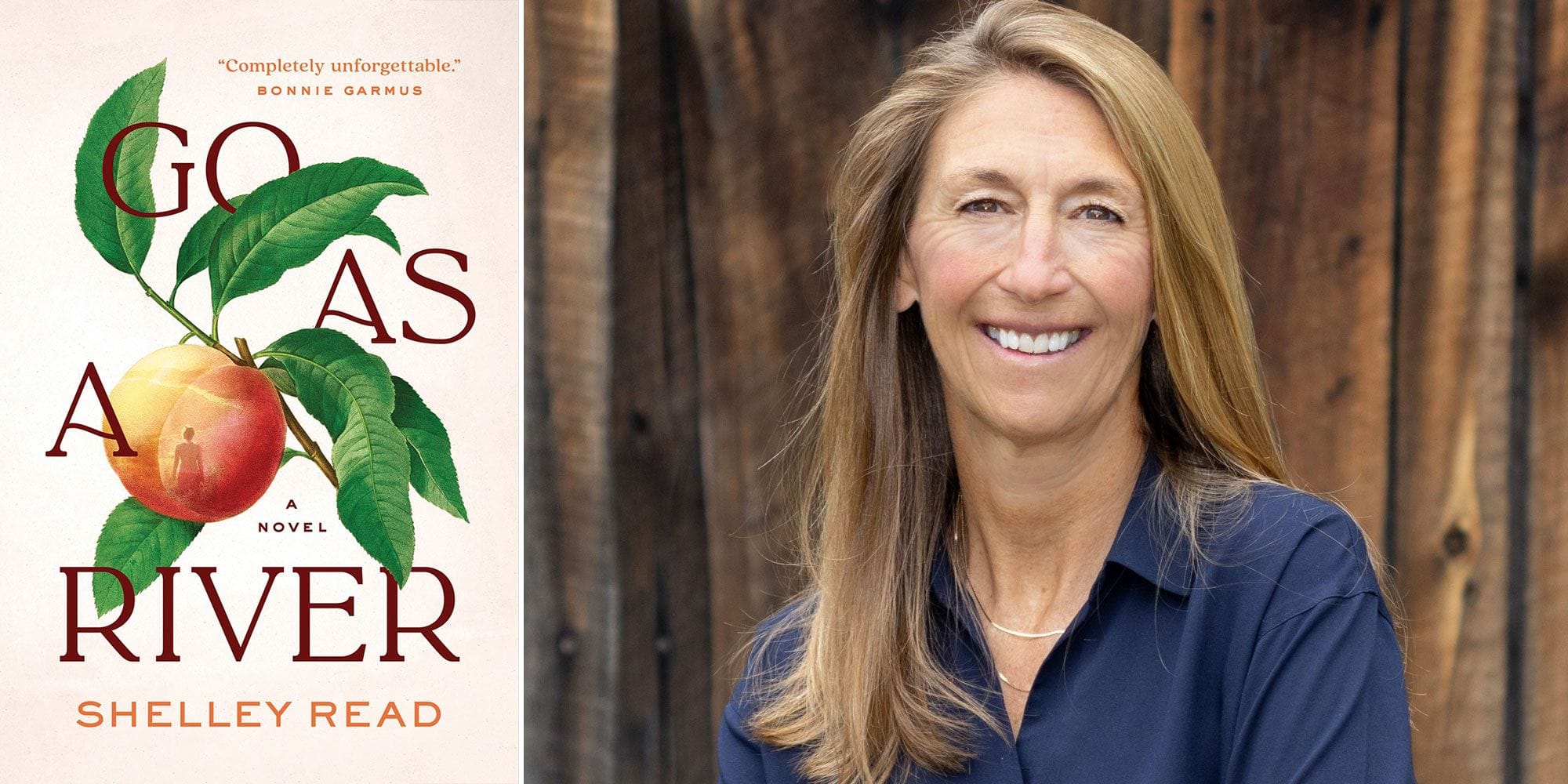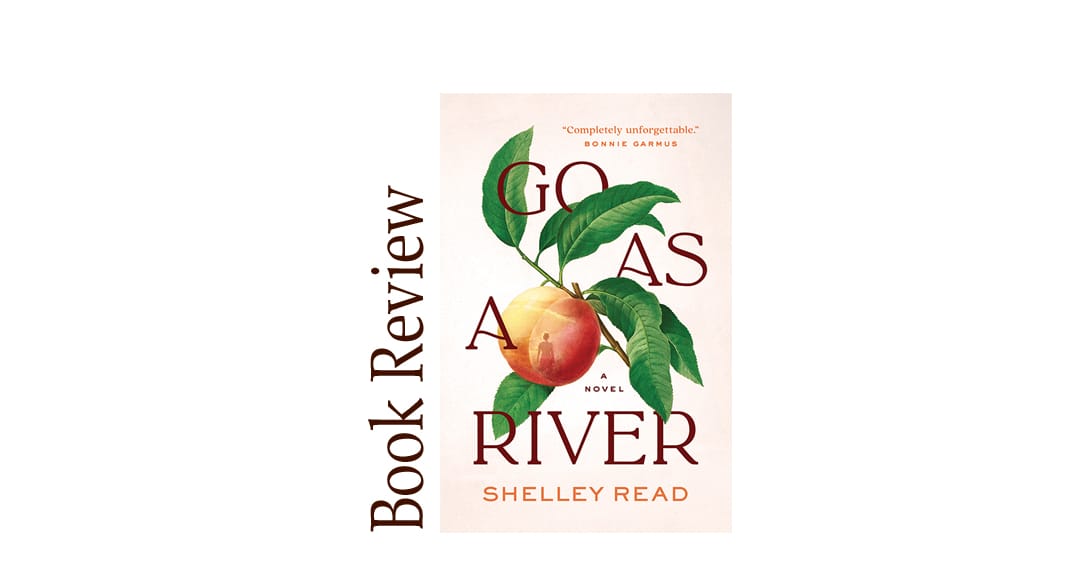- Date Published:
2023 - Length:
320 pages—Listening Time: 9 hr 58 minutes - Genre:
Fiction, Historical Fiction - Setting:
1940-1971; rural Colorado - Awards:
High Plains Book Award Winner Fiction 2024; Goodreads Choice Awards Nominee Historical Fiction 2023; Reading the West Book Award Winner Debut Fiction 2024; Lariat Adult Fiction Reading List Top Ten 2024; Books Scientific American Recommends Bountiful Backlist 2024; Denver Public Library Staff Picks for Adults Fiction 2023 - Languages:
English, Danish, Dutch, German, Latin, Romanian, Spanish - Sensitive Aspects:
Racism and racial violence, domestic violence, emotional abuse, neglect, and alcohol abuse within family relationships, childbirth trauma, death of a parent, and abandonment, emotional trauma related to loss, grief, and adoption, PTSD and violent death - Movie:
The film rights for Shelley Read's novel were acquired by production companies Fifth Season and Mazur Kaplan in partnership, but as of October 2025, there is no information about the movie. - Recommended for Book Club:
Yes. Excellent read!

There are books that ask for your attention—and then there are books that quietly steal your breath and your heart. Go As a River by Shelley Read did the latter. It’s been months since I finished it, and I still find myself drifting back to those mountain valleys, hearing the rush of the Gunnison River, holding my breath for a girl named Victoria Nash who refuses to vanish into her losses.
This isn’t just a story about resilience. It’s about what it means to be tethered—to land, to love, to the invisible threads of grief and hope that pull us through seasons we never thought we’d survive. Read’s prose is so textured you can smell the dust of the peach orchard, feel the ache of the Colorado sun on your skin, and taste the quiet hunger of a life too contained.
If you’ve ever loved someone you couldn’t keep, or tried to build a life from the wreckage of what’s been taken, this book will meet you exactly where you are. It’s tender without falling into sentimentality, raw but never cruel. Shelley Read doesn’t rush her story; she lets it unfold the way rivers do—meandering, carving its own truth into the landscape.
There were moments I had to close the book and just sit with what I’d read. The kind of stillness that only follows something that matters. Victoria’s journey—her quiet courage, her deep attunement to the natural world—felt almost sacred.
It’s rare for a debut to feel so timeless and assured. Go As a River reminded me that strength can whisper, that forgiveness can take years, and that sometimes, the most extraordinary thing a woman can do is choose to keep going.

Shelley Read’s Go As a River is a stirring, luminous tale about growth, loss, and resilience, set amid the rugged beauty of mid-century Colorado. The story centers on seventeen-year-old Victoria Nash, the only woman left in her family after the tragic loss of her mother. Living on a peach farm in the small town of Iola, Victoria shoulders domestic responsibilities while her father and brothers labor in the orchards. Her world changes the day she meets Wilson Moon—a gentle, enigmatic drifter of Indigenous descent—whose brief presence alters the course of her life forever.
From this pivotal encounter flows a decades-long story of survival and self-discovery, told with emotional precision and a deep reverence for nature. Like the river that threads through the novel, Victoria’s journey is shaped by shifts of current, moments of stillness, and storms that test her strength. The book beautifully evokes how a single moment can erode the landscape of a life, much as water reshapes the earth. Colorado’s mountains and orchards form more than just a backdrop—they are active participants in Victoria’s transformation, mirroring her endurance and her aching desire for renewal.
For book clubs, Go As a River offers a wealth of discussion themes. It’s a powerful coming-of-age narrative about what it means to find grace after loss, to claim identity in the shadow of repression, and to discover home in unexpected places. It explores deeply resonant subjects: prejudice and cultural displacement, the meaning of belonging, the inheritance of trauma, and the quiet forms of courage women display in the face of limited choices. Shelley Read’s prose, steeped in lyricism and natural imagery, invites reflection on how we endure heartbreak and rebuild ourselves without losing tenderness. Both intimate and sweeping, Go As a River is a meditation on flow—how love, grief, and hope shape us as surely as a river shapes the land.

Followers of Readers With Wrinkles will find Go as a River by Shelley Read a deeply moving, literary novel that resonates with the themes book lovers in a reflective, discussion-driven community often value. Below are compelling reasons to read it.
A profoundly emotional coming-of-age story
The novel traces Victoria Nash’s transformation from a sheltered girl into a woman tempered by loss, love, and resilience. Her evolution mirrors the way readers grow through experience—tentatively, painfully, and with grace.
Lyrical prose grounded in nature
Shelley Read’s writing evokes the Colorado wilderness with sensory depth, turning landscape into a living, breathing companion. Readers will find her descriptions of rivers, forests, and orchards both grounding and transcendent.
Perfect for book club discussion
With themes of forgiveness, prejudice, and survival, the book bursts with discussion-worthy material—ethics, personal agency, and the impact of environment on identity. It closes on hope without false sentimentality, sparking debate among thoughtful readers.
Resonant themes of displacement and belonging
The novel’s depiction of a town flooded to make way for a reservoir is a potent metaphor for memory and identity. Readers drawn to stories about place, loss, and renewal will connect to Victoria’s struggle to rebuild her sense of home.
A feminist lens on endurance
Like Where the Crawdads Sing, this story centers on a quiet yet courageous woman who survives societal rejection and personal devastation. Victoria’s strength underscores the overlooked heroics of ordinary women.
Reflections on grief and healing
The narrative compassionately captures the way trauma reshapes perspective—how the “sadness that changes everything” becomes part of the self. Its sincerity will move readers who gravitate toward emotionally rich, character-driven fiction.
Historical setting with timeless relevance
Set in post-war Colorado, the novel weaves in racial prejudice, rural hardship, and environmental change—issues that remain contemporary in their implications.
For lovers of literary fiction and nature writing
Readers who appreciate poetic narrative and immersive prose, akin to Barbara Kingsolver or Kent Haruf, will find Shelley Read’s debut astonishingly mature and unforgettable.
An ending that lingers
The story’s conclusion delivers both catharsis and contemplation—an emotionally satisfying close that refuses easy resolution, echoing life’s uneven flow.


Get Go As a River
Set in the wild beauty of 1940s Colorado, Go As a River by Shelley Read is a stirring tale of love, loss, and resilience. When a chance encounter changes young Victoria Nash’s life, she’s forced to navigate heartbreak and the unforgiving power of nature with quiet strength and grace. This luminous debut celebrates the human spirit’s capacity to endure and bloom, even after the deepest storms.

Readers who loved Go As a River by Shelley Read often enjoy historical and nature-infused fiction that explores resilience, love, and the human connection to landscape. Below are standout books that share similar emotional and thematic depth.
- Tom Lake by Ann Patchett
In this luminous novel, a mother recalls a long-ago summer romance to her adult daughters during the pandemic lockdown. Set in rural Michigan, Tom Lake mirrors Go As a River in its sweeping sense of place and themes of love, loss, and self-discovery across generations. - In the Garden of Stone by Susan Tekulve
A haunting family saga set in the coal mines of South Carolina, this novel spans generations, exploring endurance and redemption through hardship. The atmospheric writing and rural grit evoke the strength and solitude found in Shelley Read’s work. - Once Upon a River by Bonnie Jo Campbell
After her father’s death, a teenage girl navigates life on Michigan’s Stark River, facing violence and independence in the wilds of rural America. Both novels pair coming-of-age storytelling with elemental imagery of flowing water and survival. - The Great Alone by Kristin Hannah
Set in 1970s Alaska, this story follows a teenage girl and her family through isolation, abusive love, and the brutal beauty of wilderness life. Its mix of emotional resilience and wild natural setting will resonate deeply with Go As a River fans. - The Last Blue by Isla Morley
Inspired by real events, this historical novel centers on the “Blue People of Kentucky” and explores love and identity within prejudice and isolation. Its lyrical prose and sense of rural mystery reflect similar emotional tones. - The Wood’s Edge by Lori Benton
Set in 18th-century New York, this novel follows two families—one British, one Oneida—whose lives intertwine across cultural divides. Like Read’s Colorado setting, it weaves Indigenous history and personal courage into a larger story of belonging. - A Storm of Infinite Beauty by Julianne MacLean
A modern woman uncovers the secrets behind the tragic death of a glamorous 1960s actress. Atmospheric and emotional, it moves between past and present in ways that echo Go As a River’s meditative reflections on memory and identity. - The Butterfly Garden by Rachel Burton
Set in 1960s England, this novel blends loss, new beginnings, and secrets of the past in a small-town setting. Quiet yet powerful, it captures the emotional recovery and independence that define Victoria Nash’s journey in Go As a River. - The Resistance Girl by Mandy Robotham
A Norwegian woman aids the resistance during WWII, risking everything for love and country. Readers drawn to the courage and moral choices of Shelley Read’s heroines will find the same strength here. - Weyward by Emilia Hart
Spanning centuries of women’s lives intertwined by nature, secrets, and inherited resilience, Weyward is an ideal modern companion to Go As a River, equally focused on female endurance and the wildness within.
|
|
|


Comments